1. “How you doin’?” – Friends

Joey Tribbiani’s signature line became iconic long after the show’s end. It was delivered with charm and a flirtatious wink, capturing the attention of everyone around him. What started as a simple pick-up line quickly turned into a playful greeting in the real world. Fans everywhere began adopting it for casual exchanges, whether catching up with friends or joking around with coworkers. It became less about the context of the show and more about the humorous way it was delivered. People would toss it out with a smile, knowing it would lighten the mood. For some, it’s just another fun way to say hello, but for others, it’s a reminder of the lovable, goofy character who made it famous says Parade Magazine.
While Joey’s delivery is what made the phrase stick, it’s the universal appeal of his character that turned the line into a cultural staple. Over time, “How you doin’?” became a playful expression that transcended its original purpose. It’s no longer confined to flirting but is now used as a casual, friendly greeting adds Refinery29. It’s not uncommon to hear it among friends, coworkers, and even strangers who are in on the joke. Joey’s charm lives on in this one-liner, making it a permanent part of everyday speech for Friends fans and beyond.
2. “You got it, dude!” – Full House

It wasn’t just Danny Tanner who had a way with words—it was his little daughters, too. Michelle Tanner, played by twin sisters Mary-Kate and Ashley Olsen, made “You got it, dude!” an unforgettable catchphrase. She said it with such enthusiasm and a little kid’s charm that it became synonymous with her character’s sweet, innocent personality. Michelle used the line to acknowledge anything from a promise to a playful request, making it endearing to Full House fans. Over the years, fans started using it casually in their own lives, whether they were agreeing to plans or just responding to a simple request. The phrase felt lighthearted and positive, just like Michelle’s character shares Scary Mommy.
Though it originally caught on with fans of Full House, “You got it, dude!” expanded beyond the show. People started adopting it as an informal way to express agreement or show support. Whether you’re reassuring a friend or answering with a simple “yes,” this line can carry a lot of warmth and enthusiasm. Its carefree vibe continues to remind people of Michelle’s infectious personality, even if they never watched the show in its prime. It’s one of those rare catchphrases that still holds up and adds a touch of nostalgia to a conversation, making it timeless explains Screen Rant.
3. “Live long and prosper.” – Star Trek
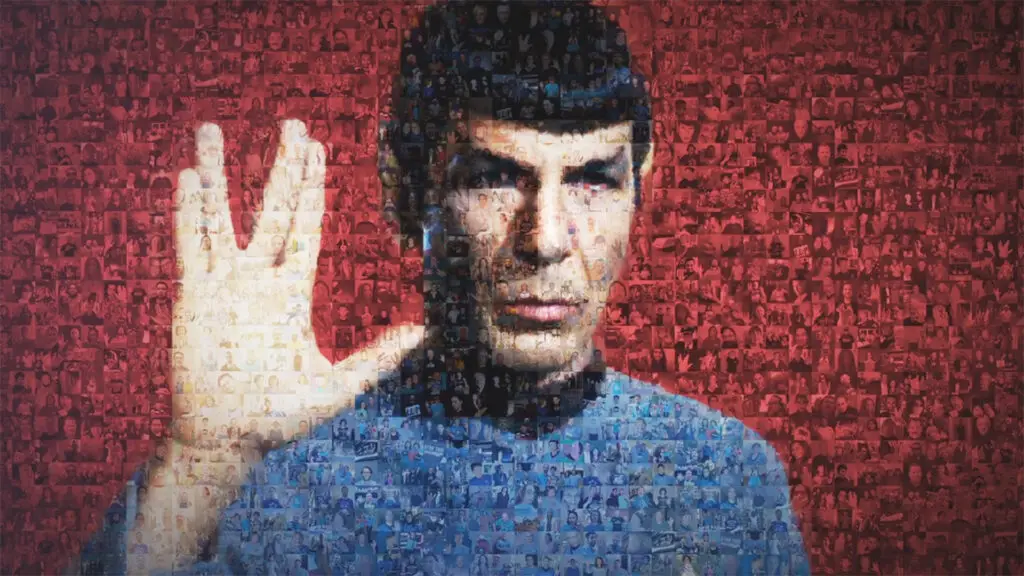
Spock’s famous line from Star Trek has become one of the most recognized catchphrases in pop culture. The phrase, accompanied by the Vulcan salute, was often used as a formal greeting in the Star Trek universe. But over time, it gained a life of its own outside the sci-fi world. Fans of the series, as well as those who simply admired the sentiment, began to incorporate it into everyday conversation. Whether as a way to wish someone well or to joke around with friends, “Live long and prosper” exudes positive energy and good intentions. It became a go-to phrase for showing support or sending someone off in a good mood.
The beauty of “Live long and prosper” lies in its versatility. It’s not just a Star Trek reference anymore; it’s a way of expressing goodwill that resonates with people from all walks of life. Fans use it in everyday situations, whether it’s signing off a text message or wishing someone success in their endeavors. The phrase has transcended its original context, becoming a symbol of positivity. The Vulcan salute that comes with it has also found its way into casual greetings, making it a fun and enduring cultural phenomenon.
4. “That’s what she said!” – The Office
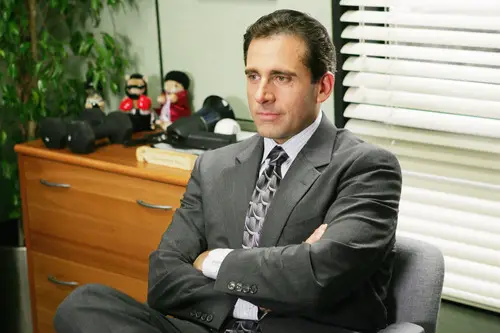
Michael Scott’s “That’s what she said!” became a go-to phrase for fans of The Office looking to turn any innocent comment into something a little more suggestive. Michael, the bumbling regional manager, would use the line to add a layer of humor to even the most mundane situations. Though the phrase itself existed long before the show, it was The Office that really turned it into a punchline, giving it a whole new life. It caught on quickly, and before long, viewers began using it in their own lives, delivering it at the most opportune moments, whether in a conversation about work, relationships, or anything in between. The phrase became so iconic that it’s now nearly impossible to hear a vaguely suggestive comment without someone thinking, “That’s what she said.”
What made “That’s what she said!” such a phenomenon wasn’t just its suggestiveness—it was Michael Scott’s awkward, yet endearing, delivery. Fans would latch onto it as a way to inject a little humor into their own conversations, making light of situations in a way that felt both cheeky and relatable. It’s a phrase that’s still frequently used today, especially among those who are fans of The Office or enjoy quirky, offbeat humor. Over the years, it’s grown to become part of pop culture, reminding people of the humor that defined a generation of TV watchers.
5. “Dyn-o-mite!” – Good Times
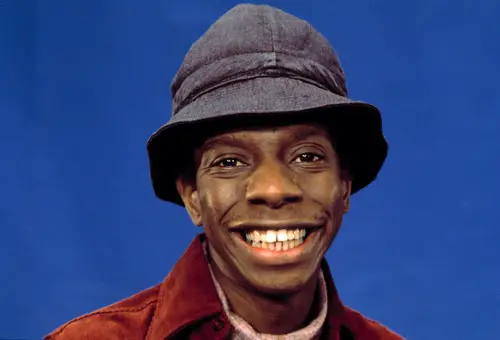
Jimmie Walker’s character, J.J., made “Dyn-o-mite!” his signature phrase on Good Times, and it quickly became a defining catchphrase of the ’70s. J.J. would shout it with exuberance, often after pulling off a joke or a playful move. The line encapsulated his larger-than-life personality and his unrelenting optimism, making it a favorite among fans of the show. It was a phrase that captured the energy of the time, with a flair for dramatics and a bit of fun. Before long, people began using it in everyday conversations, usually to express excitement or approval in a humorous way. It became a shorthand for fun moments, and the distinctive delivery helped it stand out.
As the years went by, “Dyn-o-mite!” became a nostalgic reminder of Good Times and its charismatic cast. People adopted the catchphrase to add a burst of excitement to mundane events or just to bring a bit of humor into a conversation. The phrase itself carries a sense of joy and exaggeration, making it perfect for those moments when something just blows you away. Whether you’re cheering on a friend’s accomplishment or reacting to an exciting piece of news, it’s the kind of phrase that never fails to put a smile on your face.
6. “There’s no place like home.” – The Wizard of Oz
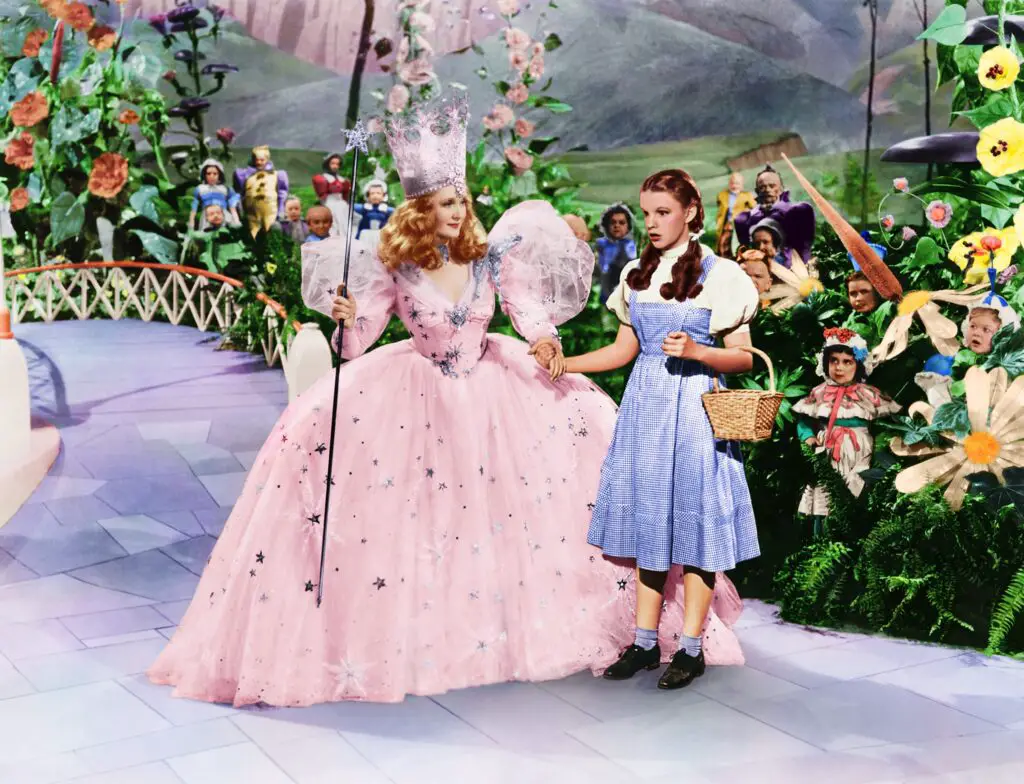
Although The Wizard of Oz wasn’t a TV show, Dorothy’s famous line has become so ingrained in pop culture that it’s often quoted in TV shows and everyday speech. “There’s no place like home” resonates with so many people, whether it’s used to describe the feeling of returning after a long trip or just finding comfort in familiar surroundings. Dorothy’s words reflect a universal truth: home is where you feel safe, loved, and most yourself. The magic of the line is in its simplicity—it speaks to the heart of what home means to each person. It’s no surprise that people have adopted this iconic phrase as part of their vocabulary.
TV shows frequently use “There’s no place like home” to evoke feelings of nostalgia or to emphasize the comfort of returning to where it all started. It’s a phrase that transcends its original context, resonating deeply with viewers and reminding them of the simple pleasures that come with being surrounded by those you love. Whether it’s at the end of a long day or when you’re reflecting on a favorite place, Dorothy’s words hold a timeless significance. It’s the kind of catchphrase that will continue to endure for generations.
7. “Smokin’!” – The Mask

When Jim Carrey took on the role of Stanley Ipkiss in The Mask, his exaggerated persona introduced a catchphrase that stuck with audiences. With a wild expression and exaggerated flair, Carrey would yell “Smokin’!” whenever something particularly exciting or thrilling happened. The line became one of his most recognizable moments in the film and quickly crossed over into everyday speech. Fans of the film adopted it as a fun expression of enthusiasm, often using it when something cool or impressive was on the horizon. The over-the-top delivery made it memorable and helped turn it into a playful way to react to anything unexpected or awesome.
Over the years, “Smokin’!” has become a way to express excitement or approval, but with a humorous twist. The phrase carries a sense of exaggerated delight, reminding fans of Carrey’s larger-than-life performance in The Mask. Though it’s no longer exclusively tied to the movie, the line continues to pop up in conversations where excitement and surprise are involved. It’s a catchphrase that remains a fun and quirky expression in everyday life, keeping Jim Carrey’s iconic character alive in pop culture.
8. “Yada yada yada.” – Seinfeld
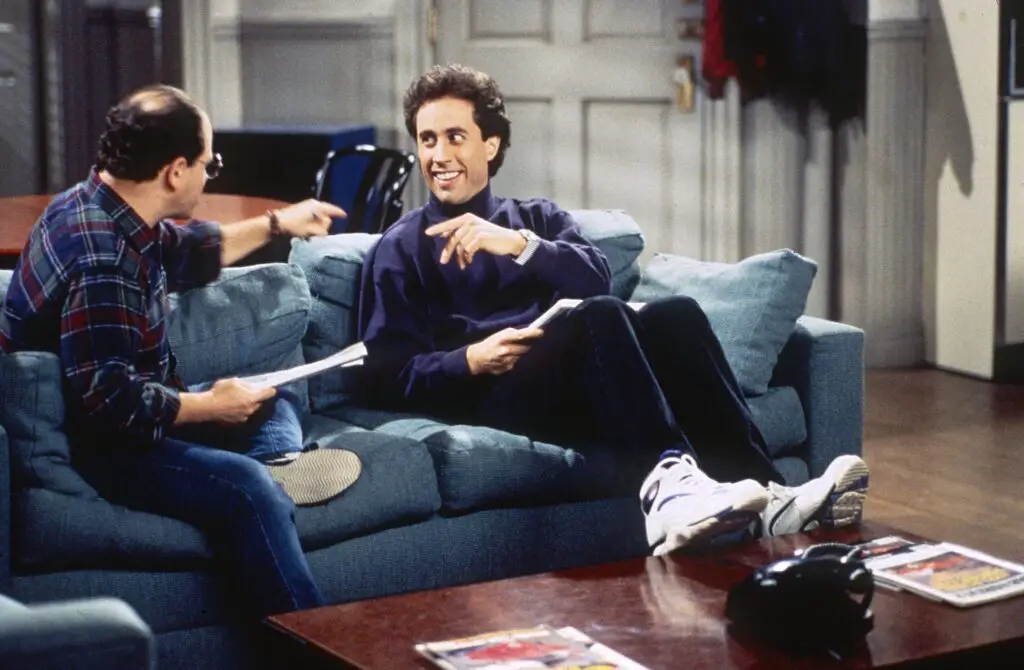
When George Costanza and Jerry Seinfeld introduced “yada yada yada” on Seinfeld, it was meant to simplify long-winded stories by shortening the irrelevant parts. The phrase quickly took off, becoming a shorthand for anything that didn’t need to be said. In typical Seinfeld fashion, the phrase was used with a humorous, often sarcastic twist. Fans began adopting it to fill in gaps in conversation or to gloss over details that weren’t important to the point they were trying to make. Whether you’re summarizing a story or skipping over the boring stuff, “yada yada yada” became a playful way to move things along.
The beauty of “yada yada yada” lies in its versatility. It works for anything from describing a long-winded story to simply dismissing a situation altogether. It’s often used to speed up conversations or make them more casual. Whether you’re telling a friend about your day or just mentioning something trivial, “yada yada yada” offers a comedic shortcut. The phrase is still used today, especially among fans of the show who recognize the familiar humor behind it. It has become a cultural staple, representing the observational humor Seinfeld was so famous for.
9. “I love it when a plan comes together.” – The A-Team
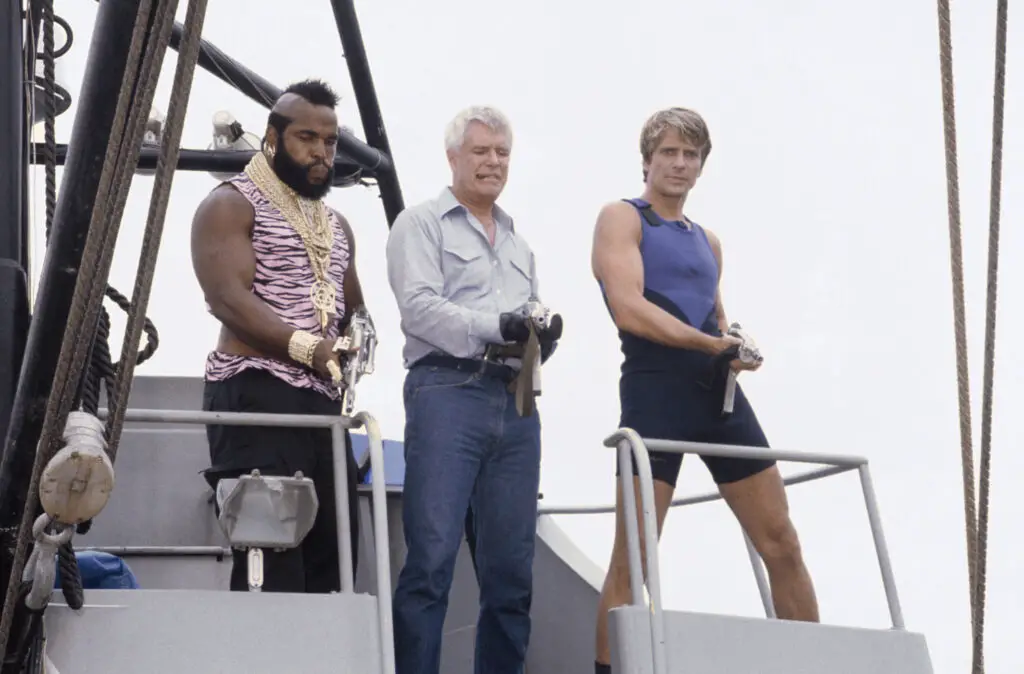
Hannibal Smith’s iconic line in The A-Team became a signature phrase for fans of the show. After every successful mission, Hannibal would say, “I love it when a plan comes together,” with a satisfied grin. It encapsulated the thrill of victory after a well-executed operation. The line is so punchy and optimistic that it found its way into everyday conversations. People began using it after things went according to plan, whether it was a work project or a social gathering. It’s a way to express satisfaction when everything falls into place, with just the right amount of coolness to make it memorable.
Even though The A-Team ended years ago, “I love it when a plan comes together” has lived on, often said with a smile when things go off without a hitch. The catchphrase resonates with anyone who appreciates the satisfaction of a job well done. It’s a phrase that acknowledges the joy of success, and its laid-back delivery keeps it feeling casual and fun. The line remains one of the best-known catchphrases in TV history, still making appearances in conversations about teamwork and triumph.
10. “Good night, John Boy.” – The Waltons
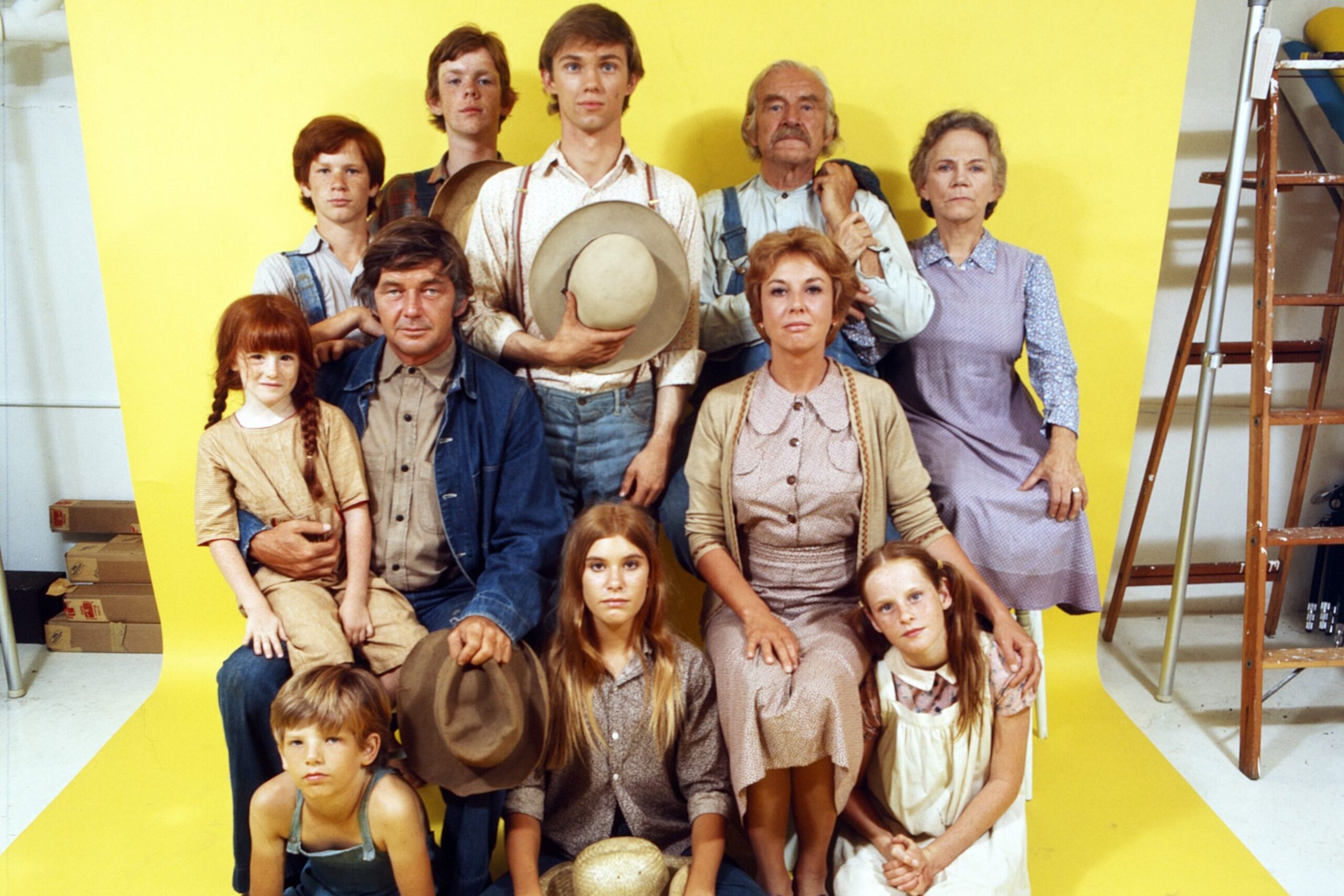
The wholesome family drama The Waltons brought “Good night, John Boy” into the lexicon, thanks to its nightly ritual where each family member would wish the others goodnight. The simple, heartfelt phrase became iconic, particularly when John Boy, the eldest son, received it at the end of each episode. Over time, it became a symbol of familial love and closeness. The phrase evokes a sense of comfort and nostalgia for viewers who grew up watching The Waltons. It became so ingrained in TV culture that it often pops up in modern conversations as a charming way to sign off.
Despite The Waltons being a period piece, “Good night, John Boy” continues to have a place in modern speech. It’s used by fans and non-fans alike as a humorous or affectionate way to say goodnight. The catchphrase has become a shorthand for family togetherness and the warmth that comes with close-knit relationships. Whether it’s a lighthearted way to bid farewell at the end of the day or simply a fun nod to a beloved show, “Good night, John Boy” remains an enduring part of TV catchphrase history.
11. “Kiss my grits!” – Alice
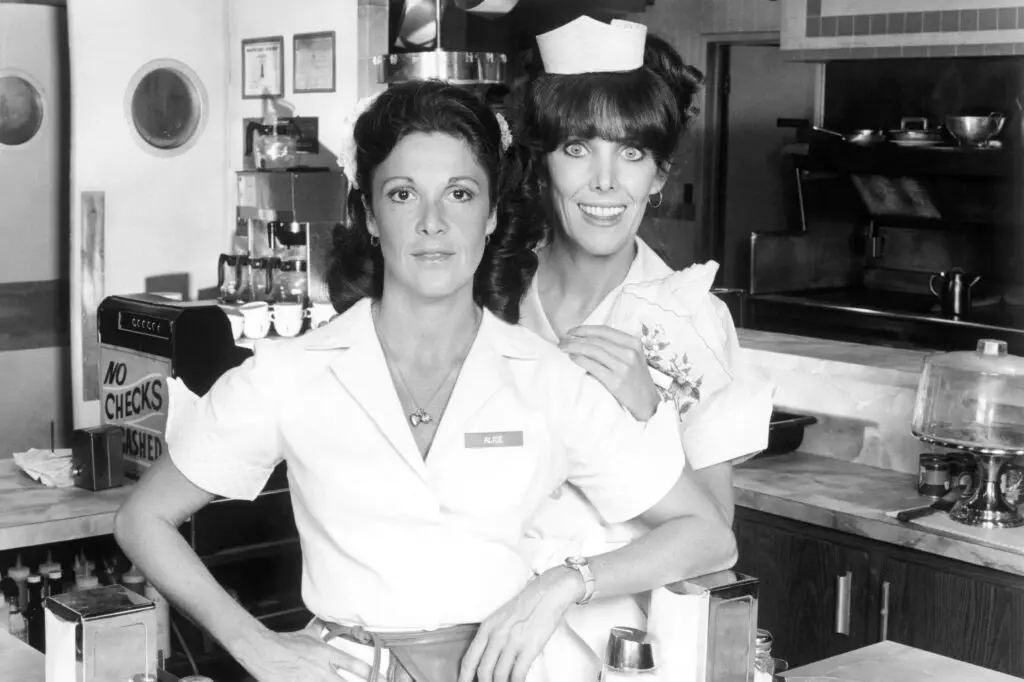
Flo’s sharp-tongued catchphrase from Alice became a quick favorite among fans. Delivered with a thick Southern drawl, Flo’s “Kiss my grits!” was her signature way of expressing frustration or sass. It was her way of telling people to mind their own business or get out of her face. What made it so memorable was how it combined humor with a bit of cheekiness. People began using “Kiss my grits!” in their own lives whenever they felt like telling someone off without getting too serious. It was a playful way to stand up for yourself, especially when you didn’t want to be too harsh.
“Kiss my grits!” quickly became a catchphrase that reflected a confident, no-nonsense attitude. Fans of Alice were drawn to Flo’s brash personality and her willingness to speak her mind, and they began echoing her words when they needed to express their own frustrations. The phrase continues to pop up in pop culture and everyday exchanges, often used in a joking manner to add some sass to a situation. It’s one of those catchphrases that balances humor with attitude, making it a timeless part of TV history.
12. “What you talkin’ ’bout, Willis?” – Diff’rent Strokes
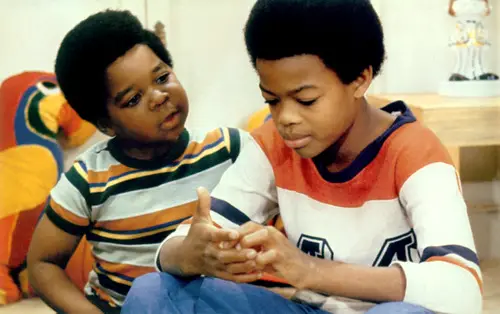
Gary Coleman’s Arnold Jackson was known for his wide-eyed innocence and his iconic question, “What you talkin’ ’bout, Willis?” Whenever his older brother, Willis, said something that confused or annoyed him, Arnold would respond with this phrase, and it quickly became a fan favorite. The line’s humor lay in its delivery—Arnold’s facial expressions and tone made it even funnier. It wasn’t long before viewers started using “What you talkin’ ’bout, Willis?” in their own lives when someone said something silly or out of line. It’s an expression of playful confusion that still makes people chuckle today.
“What you talkin’ ’bout, Willis?” has become synonymous with Arnold’s lovable, yet often perplexed, character. The phrase has crossed over from Diff’rent Strokes into the mainstream, showing up in conversations whenever something just doesn’t quite make sense. It’s often used in a lighthearted, teasing way, and its familiarity makes it easy for people to adopt. Even those who have never seen the show recognize the phrase, proving just how powerful catchphrases can be in shaping popular culture.
13. “It’s a good day to die.” – Star Trek
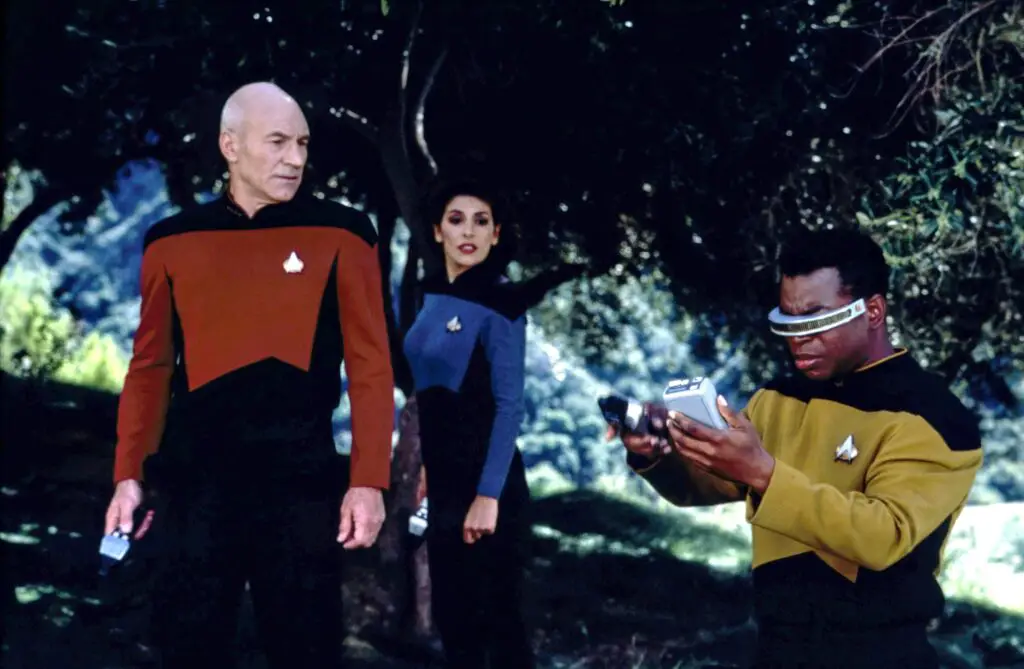
Another Star Trek phrase that has taken on a life of its own is “It’s a good day to die.” First introduced by the Klingon warriors in the series, the line speaks to a warrior’s acceptance of fate and readiness for battle. While it originally had a very serious, dramatic context in the show, it became popular in a more lighthearted manner. Fans started using the phrase to signify their willingness to tackle challenges head-on, even if those challenges seemed daunting. It’s a phrase that evokes courage and strength, and it quickly became shorthand for bravery in the face of adversity.
Although “It’s a good day to die” was initially used in a much more intense setting, it found its place in everyday language as a statement of resolve. When facing tough decisions or standing up for something important, it’s often used to express determination and an “I’ve got this” attitude. The phrase has made its way from the depths of the Star Trek universe into the vocabulary of those who face their own battles, whether metaphorical or real.
